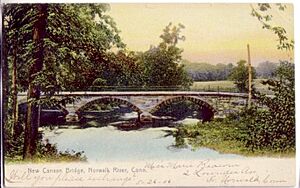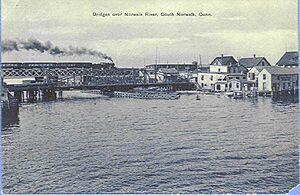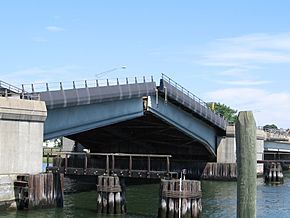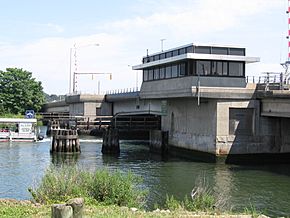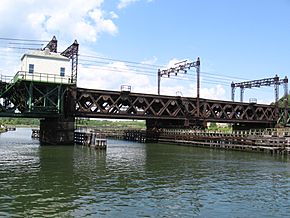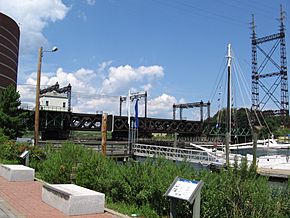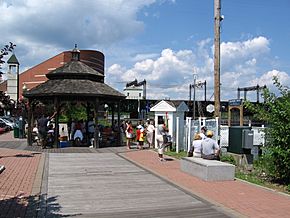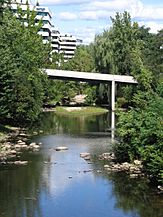Norwalk River facts for kids
Quick facts for kids Norwalk |
|
|---|---|
| Country | United States |
| Physical characteristics | |
| Main source | Ridgefield, Connecticut 507 ft (155 m) at source to sea level at mouth |
| River mouth | Long Island Sound at Norwalk, Connecticut |
| Length | 23 mi (37 km) |
The Norwalk River is a cool river in southwestern Connecticut. It's about 21 miles (34 km) long. The name "Norwalk" comes from an old Algonquian word, "noyank." This word means "point of land."
Journey of the Norwalk River
The Norwalk River starts in ponds in Ridgefield, Connecticut. These ponds flow into Ridgefield's "Great Swamp." This swamp is about 500 acres (2.0 km²) big.
The river then flows through Ridgefield. It gets more water from "Great Pond." This pond is 507 feet (155 m) above sea level. It's one of Connecticut's cleanest lakes. This is because it's fed by underwater springs.
The river flows south, close to U.S. Route 7. It passes through Branchville, Georgetown, and Wilton. Finally, it reaches Norwalk.
In Norwalk, the Silvermine River joins it. The Norwalk River then flows into Norwalk Harbor. From there, it empties into Long Island Sound.
People enjoy fishing along the river. Oystering is also popular where the river meets the sound in Norwalk.
The Big Flood of 1955
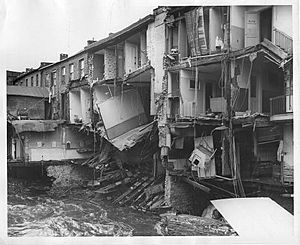
From October 14 to 17, 1955, a big tropical storm hit. It brought 12 to 14 inches (30 to 36 cm) of rain. This caused the Norwalk River and many other Connecticut rivers to flood badly.
The flood of 1955 caused the worst damage ever in the history of Norwalk. Some dams along the Norwalk River broke. This sent huge amounts of water rushing downstream. Bridges and more dams were destroyed.
Many towns near the Norwalk River also suffered a lot. Sadly, some lives were lost. The flood also caused millions of dollars in damage just in the Norwalk River watershed.
Images for kids
 | Bayard Rustin |
 | Jeannette Carter |
 | Jeremiah A. Brown |


